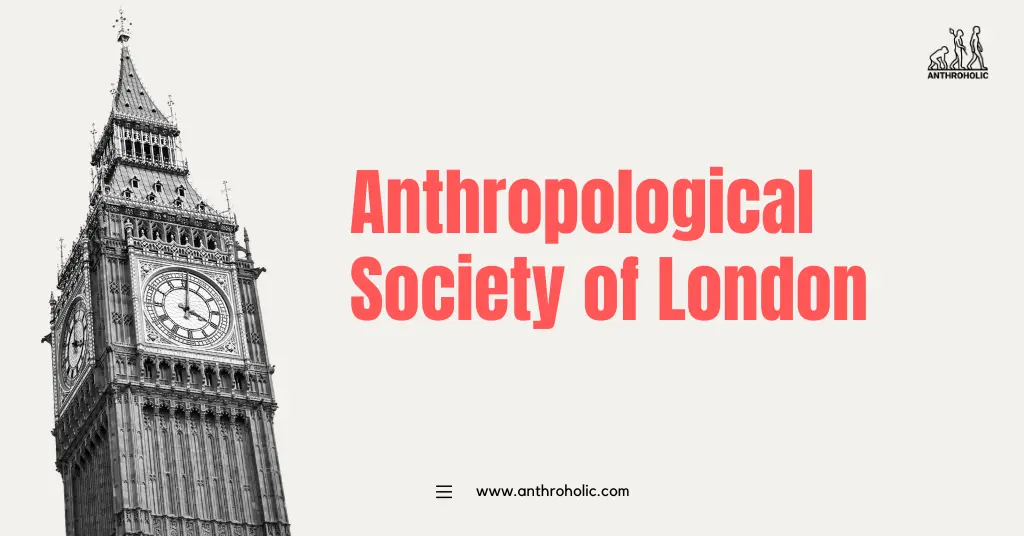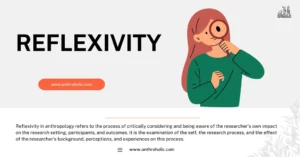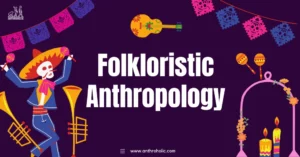AI Answer Evaluation Platform Live Now. Try Free Answer Evaluation Now
Anthropological Society of London
The Anthropological Society of London, established in 1863, is an organization that plays a significant role in the historical development of anthropology as a discipline [1]. It serves as an intellectual forum for scholars, researchers, and students interested in human societies and cultures.

Founding and Purpose
The Society was initiated by Richard Francis Burton and Dr. James Hunt, two prominent anthropologists of the Victorian era. They aimed to provide a platform for the investigation and discussion of various aspects of human life, ranging from biological differences to cultural practices and social organization [2]. Notable members included Sir John Lubbock, Alfred Russel Wallace, and Sir Edward Burnett Tylor.
Key Contributions
1. Publication of Anthropological Review
The Anthropological Society published the ‘Anthropological Review,’ a major resource for scholars [3]. This journal contained papers on ethnology, archaeology, physical anthropology, and linguistics. Some of the highlights included:
- Detailed ethnographic studies of societies around the globe.
- Reports on archaeological excavations.
- Anthropometric studies of different human populations.
2. Hosting of Lectures and Meetings
Regular meetings were held at the Society’s premises, where anthropologists could share their research. These meetings stimulated debate and increased knowledge exchange within the discipline [4].
Controversies and Debates
The Anthropological Society often found itself at the centre of controversies. The most famous debate was the conflict between monogenists and polygenists, concerning the origin of humanity [5]. Monogenists argued for a single human origin, while polygenists suggested multiple separate origins. Although these debates often revealed the biases of the period, they were also fundamental in shaping anthropology as a field.
Merger with the Ethnological Society of London
In 1871, the Anthropological Society of London merged with the Ethnological Society of London, forming the Royal Anthropological Institute of Great Britain and Ireland (RAI) [6]. This merger was significant in consolidating the discipline of anthropology in the UK, leading to a more unified approach to anthropological research.
Influence on Modern Anthropology
Despite its historical context, the Anthropological Society of London continues to influence modern anthropology. This is particularly evident in the Society’s emphasis on:
- Interdisciplinary approaches: The Society promoted dialogue between different branches of anthropology, encouraging a holistic approach to understanding human life [7].
- Global perspectives: The Society’s membership and the ethnographic accounts presented in its publications reflect its commitment to understanding human diversity.
- Public engagement: By hosting public lectures and discussions, the Society highlighted the relevance of anthropological knowledge to a broader public [8].
Legacy of the Anthropological Society of London
While the Society’s work has had a lasting influence on the field of anthropology, it is perhaps best known for its role in formalizing anthropology as a separate academic discipline and legitimizing its study within the broader academic community. The Society encouraged the systematic study of cultures and societies, which led to the formation of a distinct set of methodologies and theoretical frameworks that are still prevalent in the field today [9].
Anthropology Today: Echoes of the Anthropological Society of London
Modern anthropology owes much to the foundations laid by the Society. Key principles that underpin anthropology today were seeded during the Society’s tenure, including:
- Holistic study of cultures: Understanding cultures in their entirety rather than isolating individual aspects – an approach advocated by the Society.
- Interdisciplinary research: Engaging with different branches of anthropology, promoting a holistic view of human societies [10].
- Ethnographic fieldwork: The importance of first-hand, in-depth study of cultures, a methodology that was given much importance in the Society’s published works.
Anthropological Society of London in a Modern Light
In examining the Society’s legacy, it is crucial to contextualize its contributions and controversies. The Society operated during a period when colonial narratives heavily influenced anthropological thought, leading to some outdated and offensive perspectives. Modern anthropology rejects these biases, placing a stronger emphasis on cultural relativity and ethical research practices [11].
Final Thoughts: From London to the World
The Anthropological Society of London, while a product of its time, had an undeniably profound impact on the course of anthropology. From its inception, the Society served as a nexus for intellectual dialogue and as a platform to share and disseminate anthropological knowledge. Its legacy persists in the anthropology of today, which continues to build upon the foundation that the Society laid [12].
Table 2: Notable Members and Their Contributions
| Member | Contribution |
|---|---|
| Richard Francis Burton | Co-founder; famous for his explorations and ethnographic works |
| Dr. James Hunt | Co-founder; his works significantly contributed to physical anthropology |
| Sir John Lubbock | Advocate of prehistoric archaeology |
| Alfred Russel Wallace | Renowned biologist; contributed to debates on human evolution |
| Sir Edward Burnett Tylor | Often considered the founder of cultural anthropology |
Conclusion
The Anthropological Society of London was a crucial player in shaping anthropology as a distinct discipline. Despite periods of controversy and debate, its enduring influence can be seen in the interdisciplinary, globally engaged, and publicly relevant nature of anthropology today.
Table 1: Timeline of Anthropological Society of London
| Year | Event |
|---|---|
| 1863 | Founding of the Anthropological Society of London |
| 1863 – 1871 | Publication of the Anthropological Review |
| 1871 | Merger with the Ethnological Society of London, forming the RAI |
References
[1] Stocking, George W. (1987). “Victorian Anthropology.” Free Press.
[2] Wright, H. (2013). “James Hunt and the Anthropological Society of London.” The Anthropology of Organizations.
[3] Anthropological Society of London. (1863 – 1871). “The Anthropological Review.” Anthropological Society of London.
[4] Hunt, A. (2017). “Lectures and Debates in the Anthropological Society of London.” Journal of Historical Sociology.
[5] Kuklick, H. (1991). “The Savage Within: The Social History of British Anthropology, 1885-1945.” Cambridge University Press.
[6] Royal Anthropological Institute. (2021). “History of the RAI.” Royal Anthropological Institute.
[7] Barnard, A. (2011). “Anthropology and the Bushman.” Berghahn Books.
[8] Ingold, T. (2007). “Anthropology is Not Ethnography.” Proceedings of the British Academy.
[9] Hart, K. (2007). “Money in an Unequal World.” Texere.
[10] Ingold, T. (2000). “The Perception of the Environment: Essays on Livelihood, Dwelling and Skill.” Routledge.
[11] Asad, T. (1973). “Anthropology and the Colonial Encounter.” Ithaca Press.
[12] Eriksen, T. H. (2010). “Small Places, Large Issues – An Introduction to Social and Cultural Anthropology.” Pluto Press.



